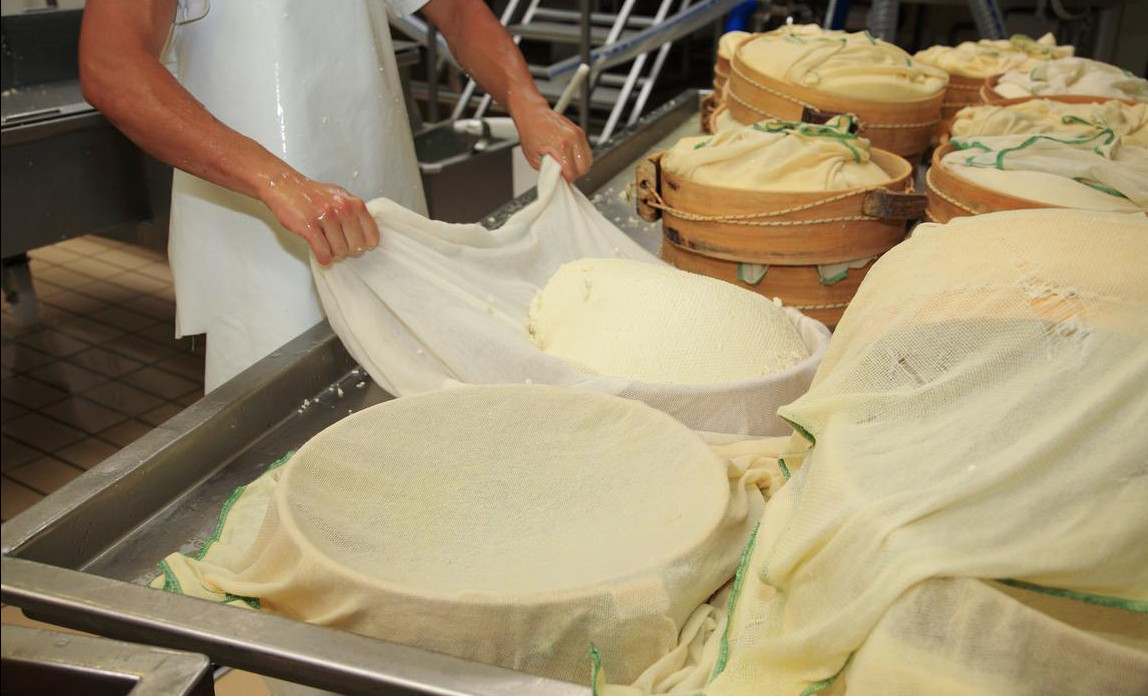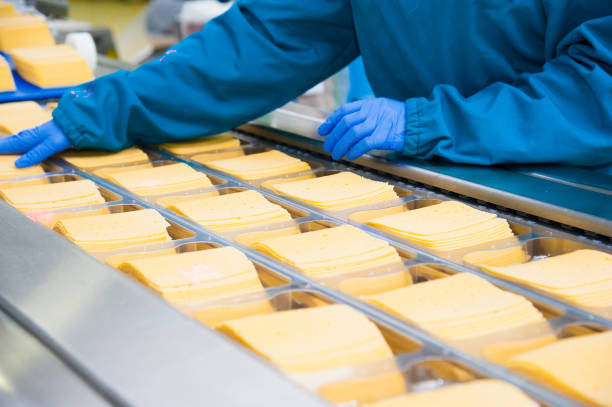Cheese Factory Melbourne: Experience the Art of Cheese
Cheese Factory Melbourne: Experience the Art of Cheese
Blog Article
A Thorough Consider Cheese Production: Components, Methods, and the Future of Artisan Cheeses
The elaborate process of cheese manufacturing is a remarkable merging of art and science, where high-quality milk, rennet, and certain bacterial cultures offer as fundamental aspects. Standard strategies, such as salting and aging, are enhanced by modern-day advancements that react to evolving customer choices. As the sector increasingly focuses on sustainability and transparency, the future of artisan cheeses guarantees to mirror both heritage and development. Recognizing the nuances of these practices increases engaging questions concerning the instructions of cheese production and its effects for high quality and authenticity. What exists in advance in this developing landscape?
Trick Active Ingredients in Cheese Manufacturing
A variety of important components play a critical duty in cheese production, each adding to the final item's taste, structure, and personality. The primary active ingredient in cheese is milk, which can originate from numerous resources, including cows, goats, and lamb - cheese store melbourne. The kind of milk made use of substantially influences the cheese's preference and uniformity; for instance, cow's milk generally produces creamier cheeses, while goat's milk commonly generates zesty selections
One more crucial ingredient is rennet, an enzyme made use of to curdle the milk, dividing it right into curds and whey. The source of rennet can be animal, vegetable, or microbial, each presenting distinctive attributes to the cheese. Cultures, being composed of particular pressures of germs, are also important to the cheese-making procedure. They ferment lactose into lactic acid, helping in taste advancement and texture.
Salt not just improves the taste yet additionally acts as a preservative, preventing the growth of unfavorable germs. In addition, numerous flavor agents, such as herbs, seasonings, or also smoked wood, can be contributed to produce one-of-a-kind artisanal cheeses. With each other, these ingredients develop the structure of cheese manufacturing, establishing the stage for diverse and abundant cheese varieties.
Standard Cheese-Making Techniques
Using standard cheese-making methods, artisans around the globe preserve classic methods that have actually been passed down with generations. These strategies typically highlight making use of high-quality, in your area sourced milk, which is main to the unique flavors and textures of artisanal cheeses. The process generally begins with the careful heating of milk, adhered to by the addition of societies and rennet to assist in coagulation.
When the curds develop, they are reduced, enabling whey to drain, an essential action that influences moisture content and appearance. Salting is a necessary element of this process, enhancing flavor while also acting as a chemical.
Aging, or affinage, is another important part, during which cheeses develop their particular scents and preferences. Artisans may use certain maturing settings, making use of moisture and temperature level controls to fine-tune the cheese's account. The dedication to these typical techniques not just sustains look at this site regional economic situations yet additionally adds to the rich variety of cheese varieties discovered around the world, celebrating cultural heritage and artisanal workmanship.
Modern Innovations in Cheese Manufacturing
Exactly how have technological developments transformed cheese manufacturing recently? The assimilation of modern innovation has transformed both the performance and top quality of cheese manufacturing. Automation in various stages of the procedure-- from curd formation to packaging-- has boosted uniformity while reducing labor expenses. Automated curd reducing and stirring systems enable for specific control over structure and dampness degrees, vital factors influencing the last product.
Additionally, advancements in microbiology have made it possible for cheesemakers to pick certain microbial societies and enzymes, enhancing flavor profiles and enhancing shelf life. The use of sensing unit modern technology for keeping an eye on fermentation conditions has actually additionally become prevalent, enabling real-time modifications to maintain ideal atmospheres for cheese aging.

These improvements not only enhance the top quality and sustainability of cheese production however likewise empower craftsmen producers to keep standard tastes while welcoming modern performance. As modern technology remains to develop, the future of cheese production looks promising, mixing custom with advancement.
The Role of Terroir in Cheese
In the realm of cheese manufacturing, terroir plays a crucial role in specifying the distinctive features of various cheeses. Terroir, a French term commonly related to red wine, encompasses the environmental variables that affect agricultural items, consisting of dirt other composition, environment, and regional plants and fauna. In cheese-making, the unique features of the region where the milk is sourced can impart specific flavors and appearances to the end product.
For circumstances, the grazing problems of milk pets significantly impact the milk's structure, influenced by the types of grasses and herbs available in a particular area. This varies not only between nations yet also between areas within the same nation. Furthermore, the microbial neighborhoods existing in the environment add to the fermentation procedures, resulting in diverse accounts in taste and fragrance.
Cheeses such as Roquefort, Parmigiano-Reggiano, and Cheddar exhibit just how terroir can form their identities, making them distinctive and frequently secured by geographical indicators. As producers progressively acknowledge the relevance of terroir, there is a growing emphasis on sourcing regional components and keeping traditional practices, guaranteeing that each cheese absolutely mirrors its beginning.

Future Trends in Artisan Cheeses
A significant change is taking place in the artisan cheese sector, driven by evolving customer choices and technical innovations. Significantly, customers are inclining distinct, high-quality items that stress both sustainability and local sourcing - cheese store melbourne. This fad is prompting artisan cheesemakers to innovate, focusing on small-batch manufacturing and making use of conventional techniques while integrating modern-day innovation to enhance top quality and safety and security
In addition, there is a growing rate of interest in plant-based and alternative dairy products, pushing conventional cheesemakers to discover brand-new methods, such as cashew or almond-based cheeses. This change not just caters to dietary restrictions however likewise straightens with environmental worries concerning pet agriculture.
Furthermore, transparency in sourcing and manufacturing procedures is coming to be extremely important. Consumers are more educated and demand traceability, triggering producers to adopt more clear labeling methods and participate in narration that highlights their approaches and worths.
Conclusion
In conclusion, the intricate procedure of cheese production melds conventional techniques with contemporary technologies, causing a varied selection of tastes and textures. The focus on high-grade active ingredients and the impact of terroir underscore the artistry included in cheese manufacturing. As the sector progresses, a Going Here concentrate on sustainability and openness will likely form the future of artisan cheeses, providing to an increasingly critical customer base that values authenticity and workmanship in milk items.
Report this page